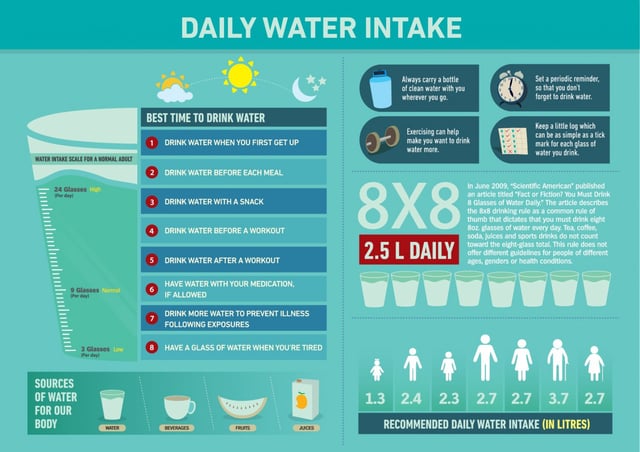
Energy is the fundamental building block of our universe. In fact, it has been scientifically proven that at the core of our being, at the molecular level, we are comprised of empty space and tiny bits of energy zipping around at the speed of light allowing us to sleep, sleep, eat, bathe, walk, talk, and even think about our passionate pursuits. But most of us don't consider how energy fuels the body’s internal functions, while working even harder to repair, build and maintain cells and body tissues. On top of all of this, the body needs energy to support all of the external activities that enable you to interact with the physical world and actually get things done.
But because of our ability to replenish energy rather quickly, we disregard its impact on our everyday. It's not until we are faced with discomfort due to the lack of energy that we start to realize how badly we need energy to live our potential. This is one of the main reasons why nutrient IV infusion therapy is so advantageous.
But before we talk about how to stay energized, let's start with some of the biggest contributing factors to energy depletion.
Sugar: A direct result to chronic fatigue.
Sugar provides quick energy rush, but after picking you up, it drops you hard and leaves you looking for more, says Debi Silber, MS, RD, president of Lifestyle Fitness Inc. in New York. The over consumption of sugar causes fatigue. Over-consumption can lead to hypoglycemia, diabetes, heart disease, and chronic tiredness. This means all of us should keep our carb and sugar intake to a minimum if we want to maintain consistent energy levels.
Caffeine: An energy shock that leaves us drained.
Caffeine can also leave us "tired and wired," Silber says.
The adrenal glands are considered big energy regulators in the body. They work like a bank. If you make a withdrawal, you need to recharge or make deposits before you go can make another withdrawal. That is where caffeine begins to become an energy depleter and not an energy builder. Caffeine forces your adrenals to withdraw energy hormones even when your body does not have much to offer. Over the years, it takes more and more caffeine to get the same result. This is why caffeine addiction can become a tremendous problem and hinder our productivity immensely.
And finally, if we need sleep and we choose caffeine instead, we continue to throw off our natural sleep cycle. This can throw off your body's ability to perform important tasks throughout the day.

Lack of sleep: A matter of priorities
Lack of sleep increases the risk of accidents and is one of the leading causes of daytime fatigue. If you don't get a good night's sleep on a regular basis, chances are, one of these "sleep busters" is keeping you awake, says Joyce Walsleben. Really consider this list of energy depleters if you're looking to stay active and productive:
- Stress or anxiety, Illness, noise, light, over committed schedule, caffeine, alcohol, stimulant medications (such as diet pills, cold and allergy remedies, asthma medications), depression or anger, and even fear.
Making sleep a priority is something many of us need to do. That requires moving work or certain commitments down our list of to-do's.
Stress: A silent killer.
The American Heart Association mentions that stress depletes your energy levels to the point where you feel tired for no reason. Conflict and stress can quickly deplete your energy resources, say Lluch and Helen Eckmann, EdD, authors of Simple Principles to Feel Better & Live Longer. Stress also impacts your mental capacity, not allowing you to focus on certain details or complete mentally challenging tasks. If you're a knowledge worker and depend heavily on your mental capacity, you probably know exactly what we mean.
(To learn about how nutrient IV therapy can help you improve your body's cognitive function, click here to read about our Executive IV drip.)
Ways to make the most of your energy supply:
Get enough sleep
To get a better night's sleep, you need to strengthen your natural sleep patterns, says Walsleben, who offers these suggestions:
- Regularize your sleep-wake patterns. Get up at the same time every day. If you wake up at 7 a.m. during the week, skip the temptation to sleep in on weekend mornings. Avoid naps, unless you take one regularly. Try to sleep the same amount of time every night. Some people need nine hours of sleep every night; some do fine with less. Find out what works for you and stick to it.
- Ritualize your cues for good sleep. Use the bedroom only for sleep and sex. Keep the room quiet, dark, and cool. Get in bed only when you're sleepy.
Exercise and engage in other physical activities
The last thing you may feel like doing when you’re tired is exercise. But many studies show that physical activity boosts energy levels. Exercise has consistently been linked to improved vigor and overall quality of life, says Kerry J. Stewart, professor of medicine and director of clinical and research exercise physiology at Johns Hopkins University School of Medicine. "People who become active have a greater sense of self-confidence. But exercise also improves the working efficiency of your heart, lungs, and muscles," Stewart says. "That’s the equivalent of improving the fuel efficiency of a car. It gives you more energy for any kind of activity."
Sit up straight
Research has shown that simply adjusting your posture can have a big impact on your mood and energy levels. One study from San Francisco State University found that choosing a more upright position can improve both mood and energy levels, while an Ohio State University study showed that sitting up straight can boost self-confidence.
With this in mind, if you're feeling a little tired but can't justify taking a break just yet, check your posture and make sure you're sitting up straight with your shoulders back and your feet flat on the ground.
Drink more water
Water, your body’s most important nutrient, helps facilitate the chemical reactions that produce energy from food. As a conductor of energy, water plays a vital role in our bodies ensuring the distribution of energy across our systems.
In general, dehydration leads to fatigue, which slowly eats away at your bodily functions you need to get through the day. Dehydration zaps energy and impairs physical performance.
"Research shows that dehydration makes it harder for athletes to complete a weight lifting workout," says Dan Judelson, PhD, assistant professor of kinesiology at California State University at Fullerton. "It’s reasonable to think that dehydration causes fatigue even for people who are just doing chores." Dehydration has also been shown to decrease alertness and concentration.
How to know if you’re drinking enough water? "Urine should be pale yellow or straw colored," Judelson says. "If it’s darker than that, you need to drink water." The more water you drink, the more awake and alert you’ll feel. Many doctors condone nutrient IV therapy infusions because most people actually don't drink enough water. Instead, people accept the fact that they're tired and take medicine to deal with headaches or even migranes when staying hydrated is the solution in the first place.

Yoga and Meditation
Although almost any exercise is good, yoga may be especially effective for boosting energy. After six weeks of once-a-week yoga classes, volunteers in a British study reported improvements in clear-mindedness, energy, and confidence.
It’s never too late to try, either. University of Oregon researchers offered yoga instruction to 135 men and women ages 65 to 85. At the end of six months, participants reported an increased sense of well-being and a boost in overall energy.
Journaling as a meditation practice can also help. Keep a journal or diary by your bedside and write down the top issues that are stressing you out that day, says Rose Forbes, co-author of 101 Great Ways to Improve Your Health. "By putting your thoughts on paper, you're giving your brain the approval to let them go for the night."
Vitamins that are sure to boost your energy levels if your diet permits.
Vitamin A:
Adding rich vitamin A foods to your daily diet can help you increase the immunity level in your body along with energy. Vitamin A foods like sweet potatoes, leafy vegetables, carrots, and dried apricots are some of the options that you can include in your meal.
Vitamin B Complex:
The B vitamins are essential for the body's production and use of energy. This group of eight vitamins - the vitamin B complex - is critical to avoiding fatigue, and they work best as a coordinated group to energize the body. B Vitamins can help weight loss as well, since they will give you more energy to be active and exercise.
There’s much to be said about vitamin B complex and its impact of the body’s energy levels. Two of the vitamins that play a major role to boost our energy levels are vitamin B6 and B12. Vitamin B6 enhances your body's metabolism, which in turn provides energy. Vitamin B12 foods are very important to consume every day. This vitamin stimulates the production of red blood cells in the body, which in turn provide good energy to the body. The good red blood cells also use iron to carry oxygen from the blood to your body cells.
This ultra popular vitamin helps convert food sources (such as fats) into energy in the body. Consuming high vitamin C foods like citrus fruits, bell peppers and green leafy vegetables can provide you with ample energy.
The highest source of vitamin D comes from the sun. But, there are foods too which have a rich source of vitamin D such as some mushrooms and fatty fish such as salmon and canned tuna fish. Vitamin D provides energy, prevents the common cold, fights depression, as well as promotes bone health.
Vitamin E:
Do you know why vitamin E is the most essential vitamin to boost energy? It is said that this vitamin helps in the digestion and metabolism of certain fats into the body. It, thereby, promotes the growth and development of muscle tissue, which increases the energy levels in the body. A handful of almonds, canola oil and kiwi help in providing a good amount of vitamin E to the body.
Since vitamins have a direct influence on how much energy we produce, why are we not stocking up? Most people don't take their daily dose of vitamins and minerals, nor do they attempt to change this horrible habit. Liquivida IV drips are an excellent option allowing you to get vitamins, minerals, and amino acids direct to your bloodstream. The impact is tremendous when nutrient iv infusions become part of your lifestyle, allowing you to reap the benefits of this energizing elements.






 By Liquivida®
By Liquivida®


